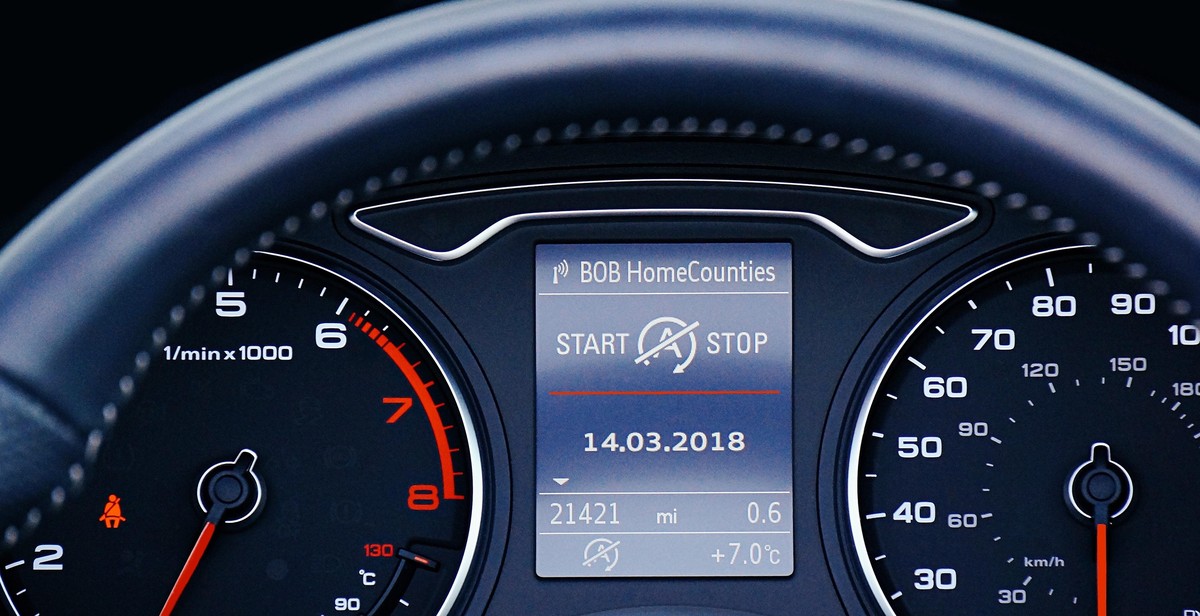Hydrogen to Power Cars Basic Information
Hydrogen fuel is an alternative fuel source that has been gaining popularity in recent years as a potential solution to the environmental issues caused by traditional gasoline-powered vehicles. The use of hydrogen fuel cells in cars has been seen as a promising way to reduce greenhouse gas emissions and decrease our dependence on fossil fuels.
What is Hydrogen Fuel?
Hydrogen fuel is a gas made up of hydrogen molecules. It is considered a clean fuel source because it produces only water and heat when burned, with no harmful emissions. Hydrogen can be produced from a variety of sources, including natural gas, biomass, and even water through a process called electrolysis.
Why Use Hydrogen Fuel for Cars?
Hydrogen fuel cells offer several advantages over traditional gasoline-powered vehicles. Not only do they produce zero emissions, but they are also more efficient than internal combustion engines. Hydrogen fuel cells are also quieter, smoother, and require less maintenance than traditional engines.
Another advantage of hydrogen fuel cells is that they can be refueled quickly, just like gasoline-powered vehicles. This is in contrast to electric vehicles, which can take several hours to fully charge.
How Does a Hydrogen Fuel Cell Work?
A hydrogen fuel cell works by combining hydrogen with oxygen to produce electricity. The fuel cell consists of an anode, a cathode, and an electrolyte. When hydrogen is introduced to the anode, it is split into protons and electrons. The protons pass through the electrolyte to the cathode, while the electrons are forced to travel through a circuit, producing electricity.
At the cathode, oxygen is introduced, and the protons and electrons combine with the oxygen to produce water and heat. This reaction produces no emissions, making it a clean and efficient way to power vehicles.
While hydrogen fuel cells have several advantages, there are also some challenges to their widespread adoption. One of the biggest challenges is the lack of infrastructure for refueling hydrogen vehicles. However, as more automakers invest in hydrogen fuel cell technology and governments provide incentives for their adoption, it is possible that hydrogen fuel cells could become a more common sight on our roads in the future.

Advantages of Hydrogen Fuel for Cars
Hydrogen fuel has emerged as a promising alternative to traditional fossil fuels for powering cars. Here are some of the key advantages of hydrogen fuel:
Cleaner Energy Source
One of the biggest advantages of hydrogen fuel is that it is a much cleaner source of energy compared to traditional gasoline or diesel. When hydrogen is used to power a car, the only byproduct that is produced is water vapor, making it a zero-emission fuel. This means that hydrogen fuel cell vehicles can help reduce the amount of harmful pollutants that are released into the atmosphere, which can have a significant impact on air quality and public health.
Furthermore, the production of hydrogen fuel can also be done using renewable energy sources, such as wind or solar power. This means that hydrogen fuel can be produced without any greenhouse gas emissions, making it a truly sustainable energy source.
Reduced Dependence on Fossil Fuels
Another advantage of hydrogen fuel is that it can help reduce our dependence on fossil fuels. As the world’s oil reserves continue to deplete, finding alternative sources of energy has become increasingly important. Hydrogen fuel offers a viable alternative to traditional fossil fuels, and can help reduce our reliance on foreign oil. This can have a number of benefits, including greater energy security and stability, as well as a reduced risk of price fluctuations in the global oil market.
Efficient and Reliable
Hydrogen fuel cell vehicles are also highly efficient and reliable. Unlike traditional gasoline or diesel engines, which are prone to wear and tear, fuel cell vehicles have very few moving parts, which means that they require less maintenance and have a longer lifespan. Additionally, hydrogen fuel cell vehicles are highly efficient, with fuel economy rates that are comparable to gasoline or diesel vehicles. This means that drivers can enjoy the benefits of a clean, sustainable fuel source without sacrificing performance or reliability.
Overall, hydrogen fuel has emerged as a promising alternative to traditional fossil fuels for powering cars. With its clean energy source, reduced dependence on fossil fuels, and efficient and reliable performance, hydrogen fuel cell vehicles offer a number of advantages that make them a compelling choice for drivers who are looking to reduce their environmental impact and embrace a more sustainable future.

Disadvantages of Hydrogen Fuel for Cars
While hydrogen fuel has been touted as a clean and efficient alternative to gasoline, there are several disadvantages that must be considered.
Expensive to Produce
One of the primary disadvantages of hydrogen fuel is the high cost of production. Currently, most hydrogen is produced from natural gas through a process called steam methane reforming. This process is energy-intensive and requires large amounts of electricity and natural gas. As a result, the cost of producing hydrogen is much higher than traditional fossil fuels.
While there are alternative methods of producing hydrogen, such as electrolysis and biomass gasification, these methods are currently more expensive and less efficient than steam methane reforming.
Limited Infrastructure
Another major disadvantage of hydrogen fuel is the limited infrastructure for distribution and storage. Unlike gasoline, which can be easily transported and stored in large quantities, hydrogen is much more difficult to handle.
Currently, there are only a few dozen hydrogen fueling stations in the United States, and most of them are located in California. This means that if you want to drive a hydrogen-powered car, you may have trouble finding a fueling station near you.
In addition, hydrogen must be stored at high pressures or extremely low temperatures, which requires specialized equipment and infrastructure. This makes it difficult and expensive to transport and store large quantities of hydrogen.
Safety Concerns
Another disadvantage of hydrogen fuel is the safety concerns associated with its production, storage, and use. Hydrogen is highly flammable and can be explosive in certain conditions.
While hydrogen fuel cell vehicles are designed with safety features to prevent leaks and explosions, there is still a risk of accidents or malfunctions. In addition, the infrastructure for producing, storing, and transporting hydrogen must also be carefully designed and maintained to minimize the risk of accidents.
Overall, while hydrogen fuel has the potential to be a clean and efficient alternative to gasoline, there are several significant disadvantages that must be considered. Until these issues can be addressed, it is unlikely that hydrogen fuel will become a widely adopted alternative to traditional fossil fuels.

Hydrogen Fuel vs. Electric Cars
Hydrogen fuel cars and electric cars are two of the most popular alternative fuel vehicles in the market today. Both types of vehicles have their unique advantages and disadvantages, and it is important to understand the differences between them before making a decision on which one to purchase.
Hydrogen Fuel Cars
Hydrogen fuel cars are powered by hydrogen fuel cells that convert hydrogen into electricity, which is then used to power the car’s electric motor. These vehicles emit only water vapor and heat, making them a clean and environmentally-friendly option. Hydrogen fuel cars also have a longer driving range compared to electric cars, with some models capable of driving up to 300 miles on a single tank of hydrogen.
However, hydrogen fuel cars also have some drawbacks. The biggest challenge is the lack of infrastructure for refueling. Currently, there are only a few dozen hydrogen refueling stations in the United States, making it difficult for drivers to travel long distances. Additionally, hydrogen fuel is also more expensive than gasoline, and there are only a few models of hydrogen fuel cars available in the market.
Electric Cars
Electric cars, on the other hand, are powered by rechargeable lithium-ion batteries that store electricity to power the car’s motor. These vehicles emit no emissions and are incredibly quiet and smooth to drive. Electric cars are also more affordable to operate and maintain compared to traditional gasoline-powered cars, with lower fuel costs and fewer moving parts.
However, electric cars also have their own set of limitations. The biggest challenge is the limited driving range, with most models capable of driving only up to 100-200 miles on a single charge. Charging infrastructure is also a concern, with a limited number of charging stations available in some areas. Additionally, the batteries used in electric cars are expensive to replace, and the manufacturing process for these batteries can have a significant environmental impact.
Comparison
| Hydrogen Fuel Cars | Electric Cars | |
|---|---|---|
| Driving Range | Up to 300 miles per tank | Up to 200 miles per charge |
| Refueling/Charging Time | 3-5 minutes to refuel | 30 minutes to several hours to recharge |
| Cost | More expensive than gasoline | Less expensive to operate and maintain |
| Infrastructure | Limited hydrogen refueling stations | Limited charging stations in some areas |
| Environmental Impact | No emissions, but production of hydrogen can have environmental impact | No emissions, but battery production and disposal can have environmental impact |
- Hydrogen fuel cars have a longer driving range and can be refueled quickly, but there are limited refueling stations and the cost of hydrogen is higher than gasoline.
- Electric cars are more affordable to operate and maintain, but have a limited driving range and charging infrastructure can be a concern.
Ultimately, the choice between hydrogen fuel cars and electric cars will depend on individual needs and preferences. Those who require longer driving ranges and quick refueling may prefer hydrogen fuel cars, while those who prioritize affordability and environmental impact may opt for electric cars.

Future of Hydrogen Fuel for Cars
The use of hydrogen as an alternative fuel source for vehicles has been gaining traction in recent years as the world moves towards a more sustainable future. Hydrogen fuel cells produce electricity by combining hydrogen and oxygen, resulting in a clean and efficient power source for cars. While still in its early stages, the future of hydrogen fuel for cars looks promising.
Current Market Status
Currently, the market for hydrogen fuel cell vehicles is relatively small, with only a handful of models available from manufacturers such as Toyota, Honda, and Hyundai. However, the market is slowly growing, with more automakers investing in hydrogen fuel cell technology.
The global hydrogen fuel cell vehicle market was valued at $651.9 million in 2019 and is expected to reach $42.9 billion by 2030, growing at a compound annual growth rate (CAGR) of 61.1% from 2020 to 2030, according to a report by Allied Market Research.
Potential Growth
One of the benefits of hydrogen fuel cell vehicles is their range and refueling time. Unlike battery electric vehicles, which can take hours to recharge, hydrogen fuel cell vehicles can be refueled in a matter of minutes, making them more practical for long-distance travel.
Another advantage of hydrogen fuel cell vehicles is their zero-emission status. As governments around the world look to reduce greenhouse gas emissions, hydrogen fuel cell vehicles could play a crucial role in achieving these goals.
Furthermore, hydrogen fuel cell technology has the potential to be used in other applications, such as powering buildings and providing energy storage for the electrical grid. This could lead to further growth opportunities for the industry.
Challenges to Overcome
Despite the potential benefits of hydrogen fuel cell vehicles, there are still several challenges that need to be overcome. One of the biggest is the lack of refueling infrastructure. Currently, there are only a few dozen hydrogen refueling stations in the United States, making it difficult for consumers to access the fuel.
Another challenge is the cost of producing and storing hydrogen. While the cost of producing hydrogen has decreased in recent years, it is still more expensive than traditional fossil fuels. Additionally, the storage of hydrogen requires specialized equipment and can be dangerous if not handled properly.
| Pros | Cons |
|---|---|
| Zero emissions | Lack of refueling infrastructure |
| Fast refueling time | Cost of producing and storing hydrogen |
| Potential for use in other applications | Storage of hydrogen requires specialized equipment and can be dangerous if not handled properly |
Conclusion
The future of hydrogen fuel for cars looks promising, with the potential for significant growth and benefits such as zero emissions and fast refueling times. However, there are still several challenges that need to be addressed, such as the lack of refueling infrastructure and the cost of producing and storing hydrogen. As the industry continues to develop, it will be important to address these challenges to ensure the widespread adoption of hydrogen fuel cell vehicles.
